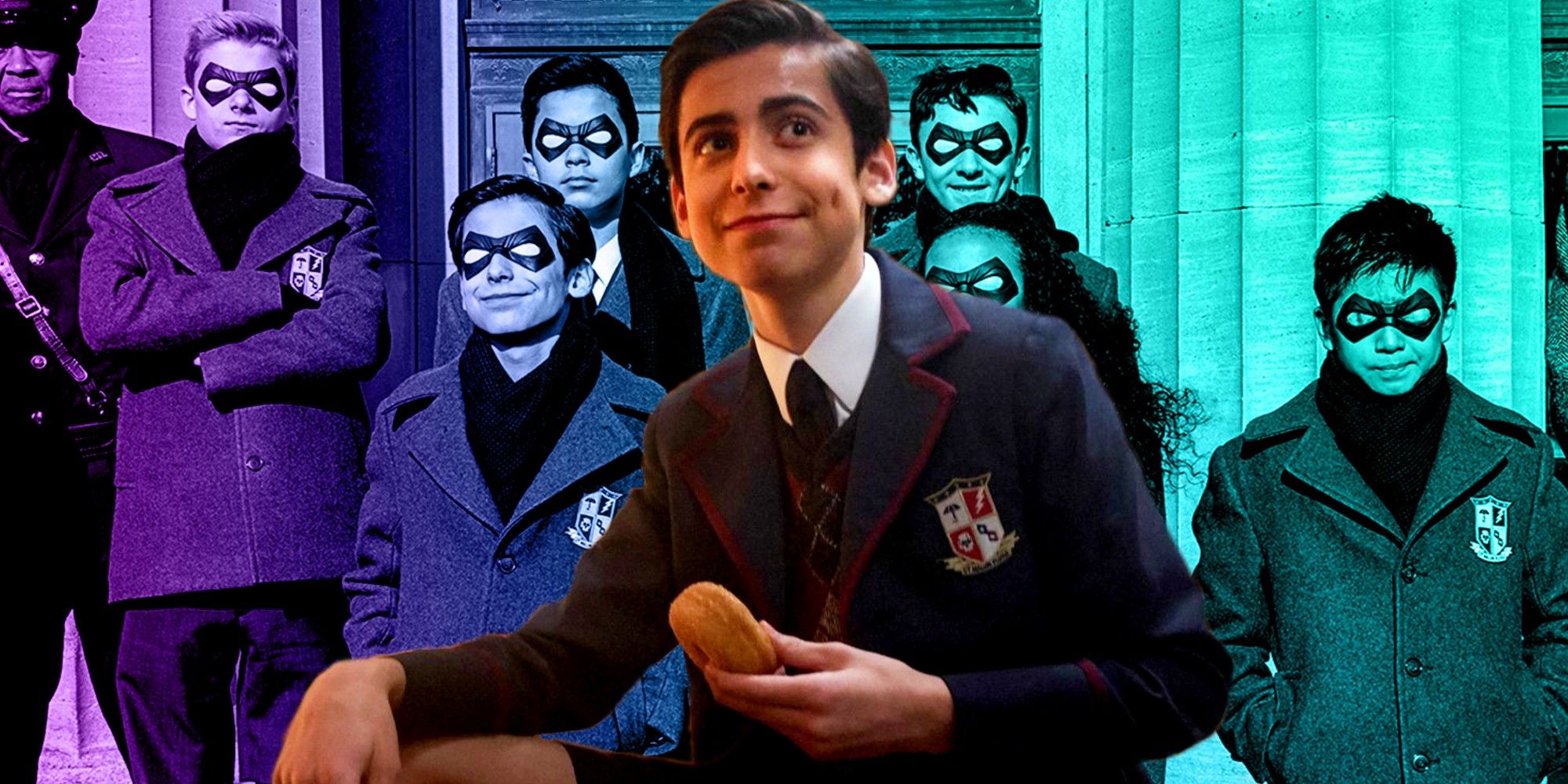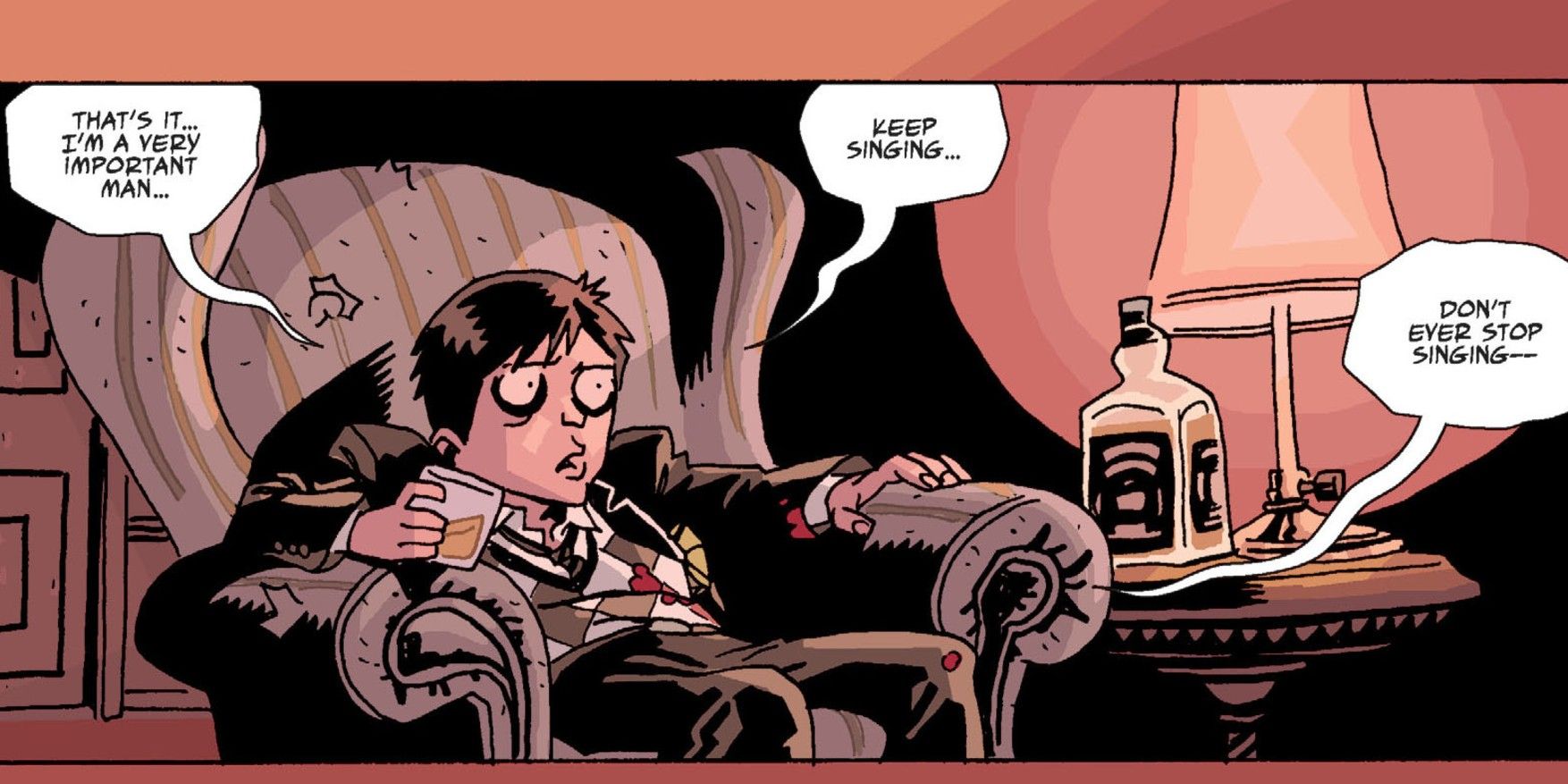
Netflix's adaptation of The Umbrella Academy cut some illegal and adult behaviors shown by Five in the comics — but why? The television adaptation of the story softened many of the harsher edges seen in the graphic novel simply because they weren't needed. The same holds true for Five's illegal behavior. The show didn't need to portray him behaving badly to convey a sense that Five is older than he looks.
In the graphic novel, Five is a borderline alcoholic, downing drinks whenever he can't cope with what's going on and making illegal bets on dog racing. At one point, he is even shown getting a bizarre strip show from Pogo dressed as Marilyn Monroe, likening his character to a dysfunctional and egotistical John F. Kennedy as President of the United States. Netflix's version of The Umbrella Academy, on the other hand, shows Five as a more outwardly law-abiding character, if still unstable. Five has no problem breaking the rules when he needs to, assassinating people at will, but his actions are more about getting things done than putting on a display of rebellion.
In the comics, Five's law-breaking conveys the idea that he is older than he appears. Five is 10 years old in the graphic novel, giving him an appearance of childlike innocence that is at odds with his dysfunctional dependencies. Five's illegal vices, behavior that is too complex for that of a child, break misconceptions about his age. His bad habits draw attention to the fact that he is an old man living in a child's body, something that is not needed in the television show. In Netflix's adaptation of The Umbrella Academy comics, Five appears onscreen much more often and is able to build a more complete character. Shocking images that draw attention to the paradox of Five's age aren't necessary, because actor Aidan Gallagher already shows that in every movement, line, and scene.

While graphic novel illustrations are static, the shifting nature of television means that Gallagher can convey Five's true age in his mannerisms, continually acting older than he appears. Netflix's changes to the story also mean that Five is more present than he is in the comics, giving him more time to show the audience his true age. From the beginning of the series, Five assumes leadership over the rest of the Umbrella Academy, reminding them constantly that, while Number Five appears 13 years old, he is actually 58 and deserving of authority. Five often demonstrates his intellectual superiority, demeaning other characters for their lack of understanding of physics and time travel. He also behaves more maturely than his siblings at times, scolding them for getting caught up in childish squabbles. Five's cynical view of life drives him to pragmatism. While his younger siblings dream of easy solutions, Five knows that if he wants something done, he'll have to do it himself.
Additionally, Five's slightly older appearance in the television show makes images of his law-breaking less effective. Seeing a 10 year old down a glass of liquor is more shocking than seeing a boy of 13 years experiment with alcohol. Blunt images of Five's bad behavior in the comics are replaced with more subtle adult behaviors in the show. Early in the series, as Five's teenage character is introduced, he is heard griping about where he can find a decent cup of black coffee, something even teenagers have to acquire a taste for.
Five is occasionally shown drinking — having a margarita with Hazel in season 1 and "a smidge" of cognac with his dad in season 2 — but his habits are more that of an adult comfortable with alcohol than a teenager going wild with the newfound ability to drink. Even Five's appearance at a strip club in season 2 is underplayed, as he asks out a waitress and gazes at the women on stage with idle interest as he waits for Luther. Throughout seasons 1 and 2 of The Umbrella Academy, new layers of Five's character are revealed, gradually strengthening the idea that he's an adult instead of impressing the notion upon audiences with one shocking image.
from ScreenRant - Feed https://ift.tt/3rM9osU

No comments: